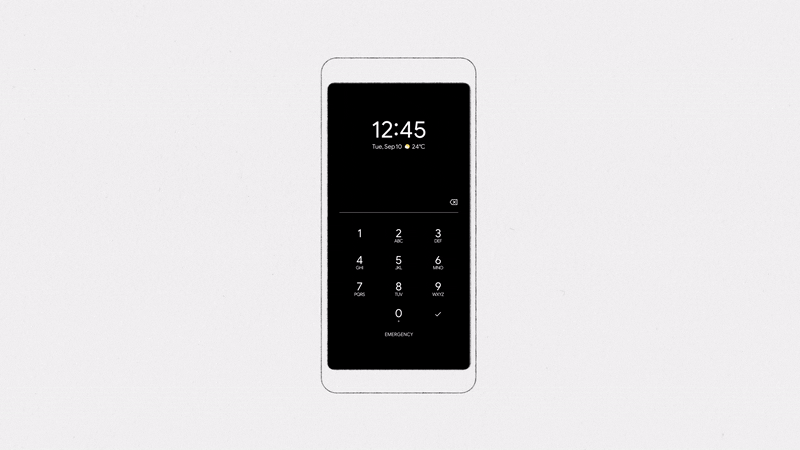
Google has a powerful suite of tools for digital wellbeing built into the past couple of versions of Android, but now the company is experimenting with other ideas. Today, the company has launched 5 new digital wellbeing experiments on Android and they’re all available as apps for you to try.
Pointed out by , these experimental apps all appeared in the “Experiments with Google” digital wellbeing collection this week. The five apps all have different use cases that help to cut down on your smartphone usage, be more aware of your usage, or limiting notifications.
Unlock Clock
The first of these apps is “Unlock Clock.” The app is used as a live wallpaper that displays the number of times you’ve unlocked your smartphone throughout the day. Once downloaded, it will appear as an option in your live wallpaper picker. “Unlock Clock” is available on the Play Store.
Unlock Clock helps you consider your tech use, by counting and displaying the number of times you unlock your phone in a day. Simply download the wallpaper and get started.

Post Box
The second of Google’s new digital wellbeing apps for Android is “Post Box.” The idea behind this app is to limit how often notifications are thrown at you. Instead of delivering them all at once, Post Box gathers your notifications through the day and delivers them in an organized way up to 4 times each day. You can see the process in action in the video below and download Post Box from the Play Store.
Post Box helps you minimise distractions, by holding your notifications until a time that suits you. Simply choose how often you’d like your notifications to be delivered. When they arrive, they’ll be neatly organised for you to go through.
We Flip
“We Flip” is designed to cut down on smartphone usage when you’re around a group of other people. The app takes every phone in the group and pairs them together. Everyone flips the switch to start a new “session.” The app then tracks who takes a peek at their phones and, when someone unlocks, the session ends and provides some stats. It seems like a clever way to keep the group accountable for their phones. We Flip is available on the Play Store.
We Flip enables you to switch off from technology as a group, to spend quality time together. Simply wait for everyone to join, then flip the switch together to begin your session. If someone in the group unlocks, the session will end and you’ll be able to see how you did.
Desert Island
Much like the classic game, Google’s “Desert Island” digital wellbeing app for Android is designed to find out what’s most important to you. The app takes over your smartphone and only includes shortcuts to the apps you need most such as the camera, a note-taking app, messages, and more. The apps listed are customizable by the user and then the app challenges users to stay like that for 24 hours. Desert Island is available on the Play Store.
Desert Island helps you find focus, by challenging you to go a day with only your essential apps. Simply pick the apps that are most important to you, then give it a go for 24 hours.
Morph
Google’s last new digital wellbeing app for Android is called “Morph.” The app is designed to adapt to whatever it is you’re doing at the time. It tries to deliver the right apps at the right time, such as displaying email, calendar, and document apps during work times. Morph is available on the Play Store.
Morph helps you stay focused, by adapting your phone to what you are doing. Simply think about how you divide your time and choose the apps that are most important to you in each mode. Based on time or place, your phone will automatically adapt – giving you just the right apps at just the right time.
More on Digital Wellbeing:
Author: Ben Schoon
Source: 9TO5Google



